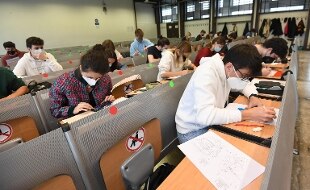University.
Minister Manfredi "we must guarantee and expand the right to education"
Research, awarded by the ERC 507 million euros to innovative projects: 8 are Italian
The rules of the Dl Sostegni bis: aid for businesses and families.
For the first time, I start searching
The "La Sapienza" University of Rome is the best in the world, surpassed even Oxford
Share
May 26, 2021The bleeding of scholars, scientists, researchers from Italian universities does not stop, so much so that the Court of Auditors estimated an increase of 41.8% in 'brain drain' from Italy in 8 years.
According to
the 2021 University System Report -
approved by the joint Sections of the Court of Auditors with resolution no. 8 / Ssrrco / Ref / 21 - in Italy, the share of young adults with a degree has steadily increased over the last decade, but still remains lower than in other OECD countries.
This phenomenon is attributable both to the persistent difficulties in entering the labor market and to the fact that the possession of a degree does not offer, as is the case in
the OECD area.
, greater employment opportunities than those of those with a lower level of education.
And the limited employment prospects, with adequate remuneration, push more and more graduates to leave our country (+ 41.8% compared to 2013).
The 2021 University System Report took into account 98 universities of which 67 state universities including 3 high schools and 3 higher education institutes, as well as 31 non-state universities, 11 of which are telematic. From the data emerge high quality judgments for
universities in the north
of the country compared to those in the south and criticalities for telematics.
The burden of
university fees
on families is also an aspect that drives the growth of the brain drain from Italy.
According to the survey, in observing "the lack of access or abandonment of university education by young people from families with low incomes", the Court of Auditors attributes the circumstance, "in addition to cultural and social factors, to the fact that spending on tertiary studies, characterized by tuition fees higher than in many other European countries, weighs almost entirely on families.
This highlights the lack of forms of tax exemption or loans or, in any case, economic aid for less well-off deserving students ". "An aspect that, for the accounting judiciary, requires
updating and completing the current legislation to fully implement the discipline of the right to education
with the definition of the essential levels of performance (Lep) and the activation of tools for the promotion and enhancement of student merit ", we read.

